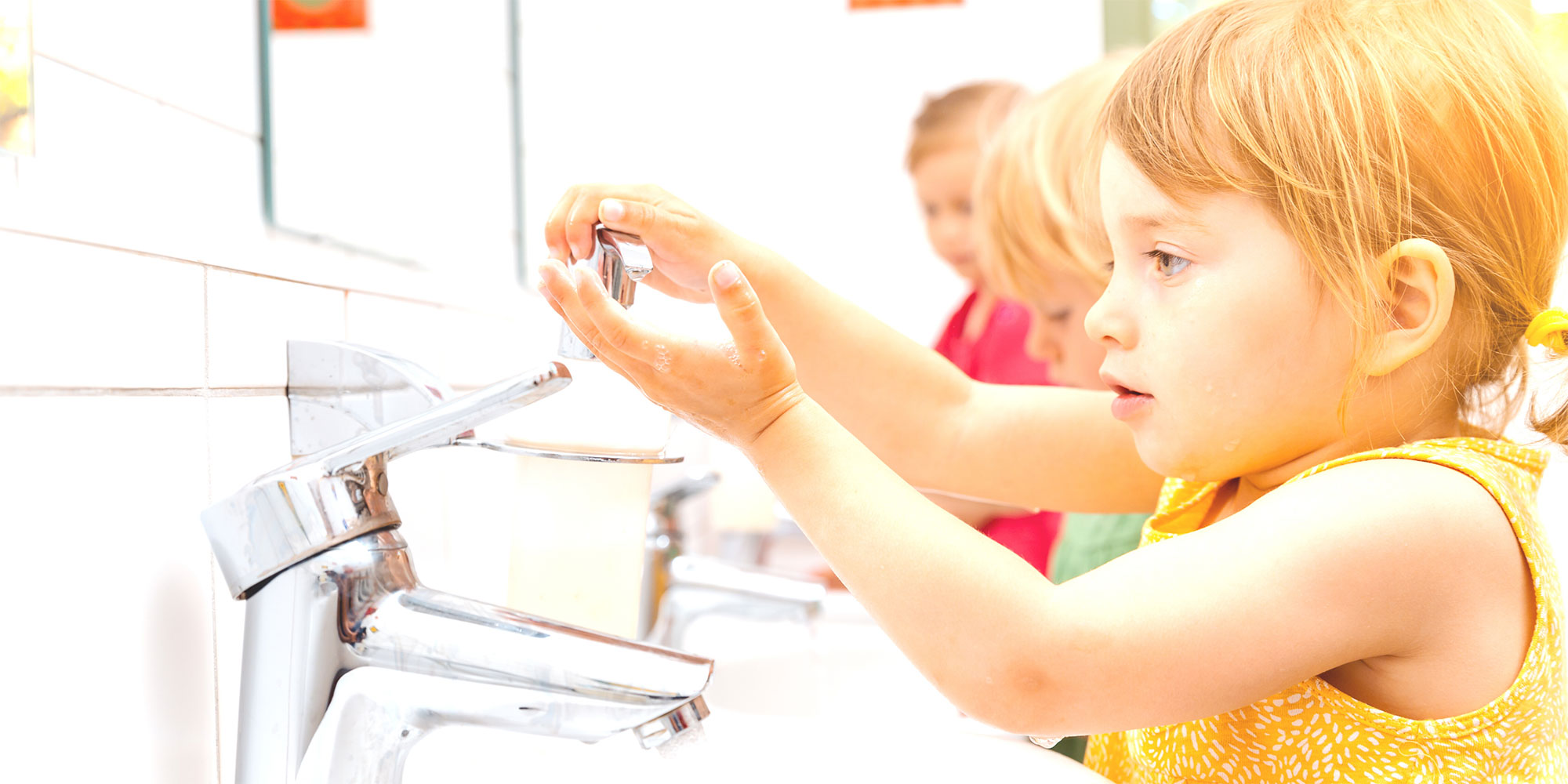
Promoting healthy and clean habits in children is one of the most effective ways to help them prevent infection. This is especially true when they are in settings, such as childcare, where they are exposed to high volumes of germs and bacteria. Though hand washing cannot completely stop them from getting sick, encouraging them to do so before and after meals, after play, after using the bathroom and after coughing is a monumental stride in keeping them free from sicknesses such as COVID-19.
The following blog explores all the strategies those with a duty of care over childcare-aged students can utilise to promote healthy hand hygiene. It also explores the techniques for effective handwashing that should be taught from a young learning phase, to encourage good habits for life. Doing so effectively can also reduce sickness in childcare settings and lessen the spread of bacteria into homes and the community.
Explain the importance of healthy hand hygiene
While there are many scientific explanations behind hand washing and its importance in preventing infections, children may not necessarily understand this explanation. Making hand washing more applicable to their lives can help them understand why they should do it more frequently. For example, telling them that they could get a cold and won’t be able to play with their friends at childcare, can nudge them in the right direction without instilling fear. In the same way, saying they won’t be able to play their favourite sport or enjoy their favourite hobby when sick is a good way to show them how hand washing is beneficial to all aspects of their lives.
As children often follow one another and participate in similar play, a child can then influence their friends at their childcare facility to wash their hands more frequently. As an additional positive, this can prevent them from bringing home harmful viruses, which may impede a family's ability to spend time doing their favourite things. 
Make handwashing fun
There may initially not seem like many ways to make hand washing fun, but with a little creativity, children will become more eager to wash their hands. Teaching them to wash to the tune of one of their favourite songs can help them confirm they are washing their hands for long enough and that they are having fun doing it. Childcare educators can even have a hand washing song that they play at designated periods to encourage children to head over to the sink and remove bacteria from their skin.
Some common songs great for singing at the sink include Happy Birthday, Twinkle Twinkle Little Star and The Alphabet Song. But, any 20-second snippet of a song works perfectly. This means childcare providers can also change the song every month or so.
Make hand washing accessible
One of the hardest parts about hand hygiene in childcare settings is how inaccessible it is. Aside from some sinks in the bathrooms, children may not have access to warm water and the appropriate hand soap. Having handwashing stations accessible near eating areas, in outdoor spaces, near sandpits, and close to frequent touchpoints can make students more inclined to wash their hands, even without being asked to do so.
It’s also essential that soap dispensers are installed at the appropriate height so children can reach them without needing to stretch too much. Automated soap dispensers can also guarantee they receive the right amount of soap for each wash, so their hands can remain as germ-free as possible.
Where childcare facilities may not have the capacity to install additional sinks, implementing sanitiser stations can help remove infections from the skin and hands. Rubbermaid can customise these to suit the average height of each classroom to ensure all students can access the dispenser. 
Rewarding positive behaviour
Positive reinforcement is one of the most effective ways to show students they have done a good job. Presenting them with a gold star or a small reward when they take the initiative to wash their hands without direction can encourage them to continue doing so. Some examples of positive experiences that should be rewarded include:
It is important to remember not to over-reward students and only enable the best behaviours as this can encourage all children to follow the example set by their peers. If students feel they can’t keep up with others, they may form a negative outlook on hand washing.
Join in with them
Children are known to follow the examples of their role models. As they idolise their parents and childcare teachers, they will want to act like them. If they notice their guardian is also doing the right thing and washing their hands, they will take more initiative to do so themselves. With students and staff washing their hands more frequently, sanitiser and soap solutions may run out more often. The Rubbermaid Commercial team can always supply refills and notify you when you may need to purchase your next batch to keep good hand hygiene consistent amongst all students.
Rubbermaid Commercial supports all businesses in the childcare space
If you own and operate a childcare facility and are looking for ways to keep your students infection-free, the team at Rubbermaid Commercial is always happy to help. Contact them today to find out more about their products and which solutions will be best suited to your premises.